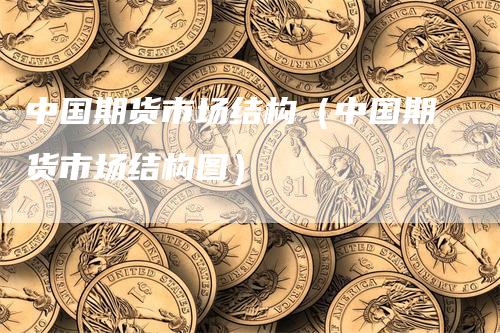
What is the structure of the Chinese futures market?
The Chinese futures market has a unique and well-defined structure. It is composed of several key components, each serving a specific purpose. Understanding the structure of the Chinese futures market is crucial for individuals and businesses interested in participating in this dynamic marketplace.
What are the main participants in the Chinese futures market?
The Chinese futures market has four main types of participants: futures exchanges, futures brokerage firms, institutional investors, and individual traders. The futures exchanges provide a platform for trading various futures contracts. The brokerage firms act as intermediaries, facilitating the buying and selling of futures contracts. Institutional investors, such as mutual funds and hedge funds, and individual traders, including retail investors, are the ones who actually participate in trading the futures contracts.
How are futures contracts structured in China?
Futures contracts in China are standardized agreements to buy or sell a specific quantity of an underlying asset at a predetermined price and delivery date. The contracts are categorized into different types, such as agricultural futures, energy futures, metal futures, and financial futures. Each type of futures contract has its own specifications, including contract size, tick size, and delivery months. These standardized contracts ensure liquidity and ease of trading in the Chinese futures market.
What role do futures exchanges play in the Chinese market?
Futures exchanges in China, such as the Shanghai Futures Exchange (SHFE) and the Dalian Commodity Exchange (DCE), serve as central marketplaces for futures trading. They provide the infrastructure, rules, and regulations for trading futures contracts. The exchanges establish the contract specifications, set trading hours, and ensure market integrity through monitoring and surveillance. They also play a vital role in introducing new futures contracts and implementing risk management measures to maintain market stability and reduce systemic risks.
How do institutional investors participate in the Chinese futures market?
Institutional investors, including mutual funds, hedge funds, and insurance companies, play a significant role in the Chinese futures market. They engage in futures trading as part of their investment strategies to diversify portfolios and potentially generate higher returns. Institutional investors often have access to more resources, research capabilities, and professional expertise, enabling them to make informed trading decisions. Their participation adds liquidity and depth to the market, benefiting all participants.
What opportunities does the Chinese futures market offer to individual traders?
The Chinese futures market provides individual traders, including retail investors, with numerous opportunities. It allows them to speculate on price movements of various commodities, currencies, and financial instruments. By leveraging margin trading and hedging strategies, individual traders can potentially profit from both rising and falling markets. Additionally, the Chinese futures market also offers smaller contract sizes and lower margin requirements compared to other financial markets, making it more accessible to individual traders.
Conclusion
Understanding the structure of the Chinese futures market is essential for anyone looking to participate in this vibrant and dynamic marketplace. With its diverse participants, standardized contracts, and well-regulated exchanges, the Chinese futures market offers a range of opportunities for both institutional investors and individual traders. So, whether you are a seasoned investor or a beginner, exploring the Chinese futures market could be a worthwhile endeavor.
